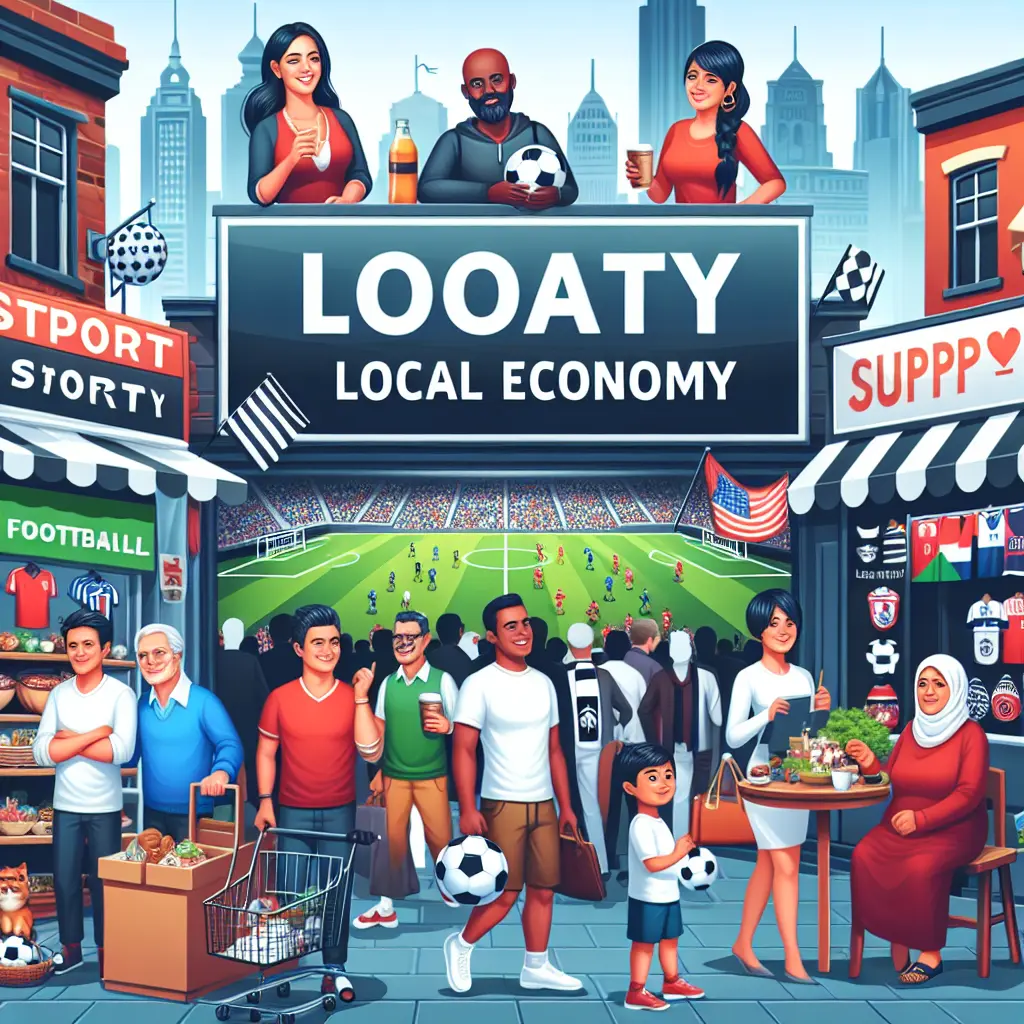
Manchester City Football Club, commonly known as Man City, is more than just a football team; it is a significant economic powerhouse influencing the Manchester economy, local communities, and beyond. This post delves into the various facets of Manchester City's economic impact, exploring how this prominent football club contributes to community development, local business growth, and urban regeneration.
Economic Impact and Man City Revenue
Manchester City’s influence on the local economy is profound. The club's success on the pitch translates into substantial economic benefits, notably in terms of revenue generation. Man City’s revenue streams from match-day sales, merchandise, and international broadcasting rights contribute significantly to the local economy. According to Deloitte's Football Money League report, Manchester City ranked sixth globally, underscoring its financial muscle and contribution to the Manchester economy (Deloitte, 2023).
Football Economic Benefits and Sports Impact Economy
The football economic benefits are multi-dimensional. Manchester City’s home games bring thousands of fans to the city, boosting sports tourism in Manchester. Hotels, restaurants, and local transport services experience surges in demand during match days, which helps in sustaining numerous local businesses and supports the broader Manchester economy. The ripple effect of sports tourism can be seen in increased spending and heightened economic activity, providing a steady income stream for many local stakeholders.
Local Business Growth and Investment in Manchester
The presence of Manchester City has spurred significant local business growth. Many businesses in Manchester have thrived by aligning with the football culture that the club promotes. From sports bars to retail stores selling Manchester City merchandise, the symbiotic relationship between the club and local businesses is unmistakable. Moreover, Manchester City's investment in state-of-the-art facilities like the Etihad Campus not only enhances the club's infrastructure but also stimulates construction, real estate, and job creation football-related sectors (Manchester Evening News, 2022).
Community Development and Man City Community Projects
Beyond economic metrics, Manchester City shows a deep commitment to community development through various initiatives. The City in the Community (CITC) foundation has been pivotal in promoting health, education, and social inclusion in Manchester’s local communities. Programs like ‘Cityzens Giving’ empower young leaders to tackle social issues using football as a tool, demonstrating how Man City community projects resonate beyond the pitch (Cityzens Giving, 2023).
Job Creation Football and Urban Regeneration Football
The job creation aspect of Manchester City’s operations is particularly noteworthy. The club is one of the largest employers in the area, offering numerous jobs ranging from event management to hospitality services. Furthermore, the urban regeneration driven by football has been evident in East Manchester, where the Etihad Stadium is located. This area has seen a significant facelift, transitioning from industrial decline to being a vibrant hub of sports and community activities.
Sports Tourism Manchester
Sports tourism in Manchester is largely pivoted around football, with Manchester City being a central figure. Visitors not only flock to watch the high-adrenaline matches but also to tour the Etihad Stadium and experience the club's rich history. This form of tourism injects substantial revenue into the local economy and elevates Manchester’s profile on a global scale.
Manchester City Influence and Sports Impact Economy
The broader sports impact economy derived from Manchester City’s activities extends to media rights and advertising revenues. The global appeal of the club attracts sponsorships from major brands, bringing additional investments into Manchester. This external investment not only solidifies Man City’s financial standing but also enhances the city’s reputation as a leading sports hub.
Conclusion
In summary, Manchester City’s role in shaping the economic landscape of local Manchester communities is multifaceted. From boosting the local economy through direct and indirect revenue generation, fostering community development via impactful projects, to catalyzing urban regeneration and promoting sports tourism, Man City’s influence is profound and far-reaching. The club not only symbolizes sporting excellence but also embodies a powerful vehicle for positive social and economic transformation.
As we reflect on these insights, it's clear that Manchester City is more than just a football club; it's a beacon of growth, hope, and revitalization for Manchester. Let us continue to support and celebrate this iconic institution that brings so much more than just football to our community.
Benjamin Clarke